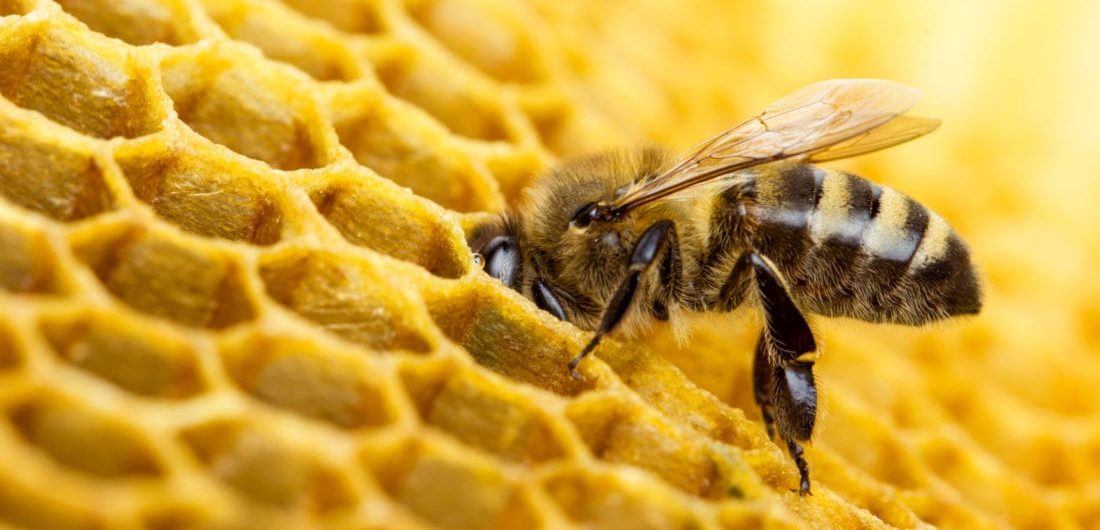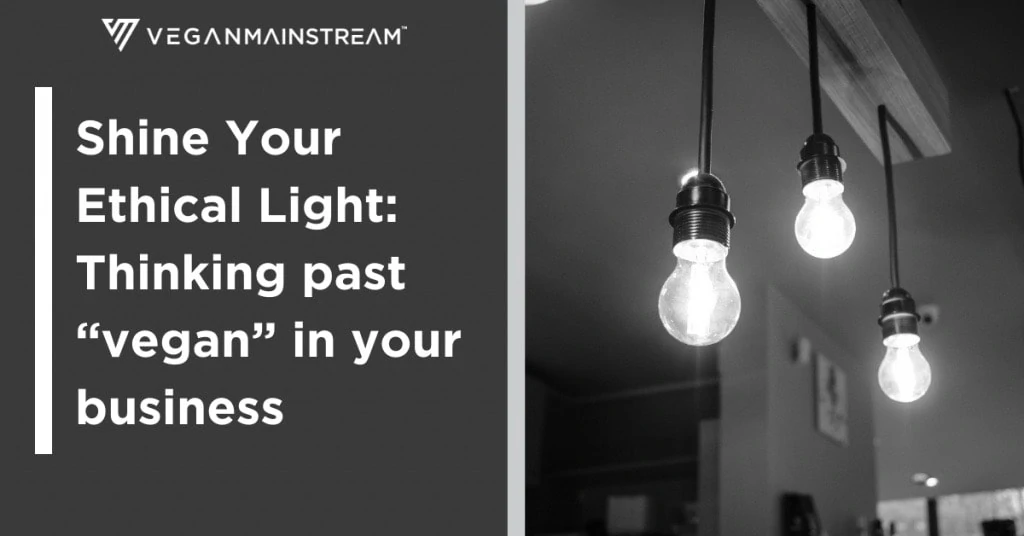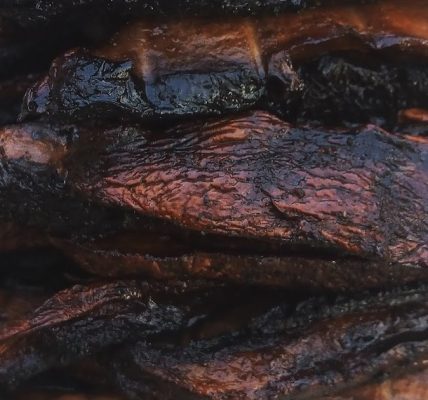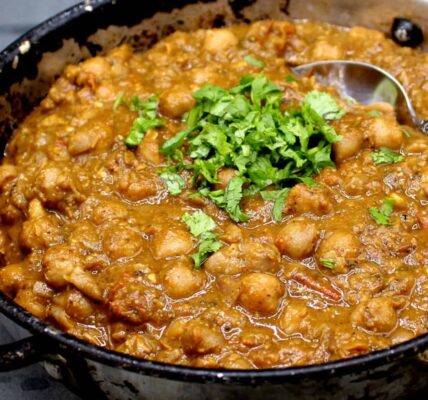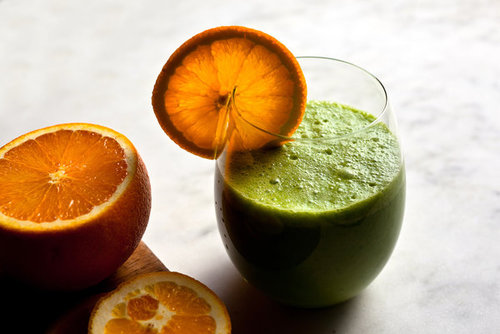The question of whether “honey is vegan” has been a decade-long question among the vegan community. When this piece was first written in 2008, it was by Lane, and he shared his thoughts as to why he eats honey as a vegan. Before we begin discussing the controversy behind honey, you can read Lane’s perspective below:
“Thanks to Nash Veggie for tweeting me this article on Slate entitled “The Great Vegan Honey Debate.” I really enjoyed reading this. There are so many things to quote from this article.
You’ll never find a self-respecting vegan downing a glass of milk or munching on a slice of buttered toast. But the modern adherent may be a little more accommodating when it comes to the dairy of the insect world: He may have relaxed his principles enough to enjoy a spoonful of honey.
Now, I’m a self-respecting vegan, and I fully expect to have a slice of pizza next time I’m in New York, deliberately. (BTW, pizza in NYC means a slice of cheese pizza, no other toppings.) Some people say it is this attitude specifically that excludes me from being a vegan, but I disagree. I consider myself to be a law-abiding citizen, but I occasionally exceed the posted speed limit (note: this is hard to do… I live in Los Angeles). One or two slices of pizza out of 1,095 meals (365 * 3) still makes me a vegan, in my book.
I am a vegan who eats honey. Again, a stance that has some of the vegan community pointing fingers and saying “You’re not a real vegan.” To that I say, you’re entitled to your opinions. I consider myself a vegan. Yes, in the animal, vegetable, mineral categorization, bees are animals. However, they are insects. I would not hesitate to have my house tented or sprayed if I had termites; insects are killed collaterally in the harvesting of my produce… If I’m willing to kill insects in these instances, is it not hypocritical to forego eating honey? If my point of view isn’t sufficient enough to sway you, here’s what Vegan Action, has to say:
Many vegans, however, are not opposed to using insect products, because they do not believe insects are conscious of pain. Moreover, even if insects were conscious of pain, it’s not clear that the production of honey involves any more pain for insects than the production of most vegetables, since the harvesting and transportation of all vegetables involves many ‘collateral’ insect deaths.
(This group has been established for over 10 years; they are a vegan outreach group. They’re calling it an acceptable vegan behavior. This is the party line I choose to follow.)
It’s also been pointed out to me that the original definition of vegan, according to the Vegan Society who coined the term back in 1944: “. . . eats a plant-based diet free from all animal products, including milk, eggs and honey.”
Some people complain that the fact that some vegans eat honey, while others don’t (refined sugar too), causes confusion in the non-vegan sector. Perhaps it does. But “vegan” is confusing for most non-vegans anyway. Do you eat eggs, milk, fish? What do you eat anyway? Before you condemn those of us who eat honey, remember, there are no perfect vegans out there.”
Lane defended his appetite for honey by stating that one of the well-known definitions of veganism is avoiding any foods that cause that species pain. Butchering a cow for its meat is obviously not vegan since the cow endures pain during the process. Chopping down plants for veggies fits the lifestyle of a vegan since it’s been well-researched that plants do not feel pain. So one thing we have to ask ourselves when we derive honey from bees, do bees get hurt in the process? Bees do feel pain, so does the process of gathering their honey cause them pain?
Anyhow, let’s get into the article!
Is Honey Vegan? – The Short Answer
Whether you eat honey or not as a vegan depends largely on your understanding of the concept of veganism. What is meant by that is that if you define veganism as the refusal to consume animal meat and products, you are likely to avoid honey as well? On the other hand, if you see it as a philosophy of not consuming products that create an unnecessary burden on other living beings, consuming honey might not be out of the question. That is, as long as it comes from local producers who treat the bees humanely and with care, and more importantly, honey that is not needed for the bees is taken.
Is Honey Vegan? – The Long Answer
To begin discussing this topic properly, we should first discuss bees. Since the latest big scare in the latter half of the 2010s that happened when large swaths of bee colonies throughout the world started dying off without any obvious reason, awareness about the indispensable role that bees play inside the ecosystem has spread rapidly.
We pretty much all know that the idea we have heard a million times in various forms – “no bees – no food – no humanity” – simply holds true according to all the information we currently have at our disposal. But what was overlooked in favor of more sensational and clickable news stories is that the honeybee is only one of many pollinator species.
Aside from several other bee species like the bumblebee and other insects like butterflies, another important pollinator in nature is various bird species. Hummingbirds, spiderhunters, sunbirds, honeycreepers and honeyeaters are the most common pollinator bird species. Now you might be asking yourself why in God’s name do I ramble about birds in an article about honey.
Well, the thing is that honey is often thought of as a byproduct of bees pollinating various plant species. This is oftentimes used as a justification and explanation – claiming that the support of the honey industry equals support for bee conservation, and is, therefore, a moral impetus. The reality is not as it would seem.
Bees produce honey for bees. They collect the nectar from millions of flowers, which they store in a secondary “nectar stomach”. When they arrive in the hive, they regurgitate the nectar for the worker bees to process and store. By processing the nectar, the worker bee adds other enzymes and nutrients to the mixture and then proceeds to remove water from the nectar by fluttering with its wings.
The final product is the golden viscous liquid we know as honey. Stored in the honeycomb, the honey is meant to provide much-needed food in harsh winter conditions when the hive hibernates because of cold weather, and for circumstances of reduced availability of food. An example of such a situation would be an overly rainy spring which causes some plant varieties, not to flower or a prolonged drought that reduces the number of flowering plants severely.
In those situations, bees consume the honey they have previously stored and the colony survives. And in times of abundance, that honey is used to feed offspring and enlarge the number of bees in the colony. In commercial beekeeping, this honey is the main resource and the well-being of the bees is secondary at best.
Commercial Beekeeping
To expand on that: commercial beekeepers will manage hundreds or even thousands of beehives at once. To stay profitable, they have to produce the largest amount of honey in the quickest way possible, and with the least manpower used. To do this they will first harvest all the honey from every beehive. That means that they won’t take the “surplus” or whatever the bees don’t currently need, but they will take all of it.
And they don’t harvest it by taking out every frame with honeycombs on it and gently sweeping off the bees with specialized brushes either – since that would use up too much time and manpower – they either use noxious fumes that force the bees to evacuate, or they use vacuums that frankly kill off many of the bees in the process.
Since they, however, need the bees to keep the production going, they need an alternative food source to keep them alive. They can’t use honey since it’s their main product and they can’t keep enough plants that will flower throughout the year and feed the bee population.
The cheapest alternative to honey is then selected as a substitute. This includes various mixtures of sugar and water that provide the necessary calories to the hive at a fraction of the cost. This is a problem because, without the added nutrients and minerals, as well as traces of pathogens and other impurities, the colony cannot develop any kind of immunity. This leads to the bees becoming increasingly susceptible to diseases and parasites.
When a colony starts showing symptoms of the disease the producer pumps them with pesticides and antibiotics – in the best-case scenario, that is. In the worst-case scenario, the cost of curing the colony is too great to be profitable – and they simply burn it.
Small Scale Beekeeping
Any way you look at it, commercial beekeeping is as inhumane as the dairy industry. But to avoid this story being all the way one-sided, let’s talk about humane alternatives. Those are several small-scale varieties of beekeeping that aim to help restore the natural balance and reduce our impact on bees as an integral part of the ecosystem.
They include “balanced beekeeping” (harvesting only the “surplus” honey), “natural beekeeping” (little to no interference with the hive) and “conservation beekeeping” (the beekeeper does not harvest or otherwise interact with the beehive), to mention a few.
In addition to all of these methods having far less impact on the health of bee colonies, and the collection of honey being much more humane due to the small number of beehives kept (even when it is being collected), these methods are much better for the environment as well.
The environmental impact of commercial beekeeping is primarily detrimental to the population of other pollinators that we mentioned before. Small-scale beekeepers don’t significantly affect this balance since they create little to no deficit in the volume of nectar available in nature.
Conservational beekeepers have virtually no impact at all since they don’t provide any additional advantage to the honeybee in relation to other species in the way of survival. The most important contribution to lessening the environmental footprint we leave behind is that small-scale beekeepers don’t engage in hired pollination.
Hired Pollination
Chauffeuring beehives in the back of a 16-wheeler in order to pollinate the monoculture fields of large agricultural producers is the hidden motherload of commercial beekeepers.
For significant monetary reimbursement, they will drive for miles on end with the bees in cramped conditions, exposed to various noxious fumes, and under severe threat from the movement; and in addition to the initial payment, the honey that the bees produce by collecting the nectar from the customer’s field that is in need of pollination is theirs to keep.
This is a commercial boon for the beekeeper, but pure poison to the environment. The bees that are used in this manner are more susceptible to sickness and disease, die-offs are huge and there is very little done to prevent it.
This poses a danger to the gene pool of the bees since with every surviving generation they become less resistant to the actual natural environment, not to mention the detrimental effect of reduced genetic diversity. Add to this the tons of CO2 being unnecessarily pumped into the air with every trip and you get an ecological catastrophe.
Small-scale producers simply don’t participate in this practice. Even if they wanted to, the small number of beehives wouldn’t be able to pollinate large fields quickly enough for them to be viable. That means that even though you still have to pay attention to who you are buying your honey from, a good start is finding small, local producers. Even if you are not all that concerned with the environmental dimension of the argument, the fact that those fields are almost exclusively monoculture farms is reason enough to prefer the small-scale local producer.
The Bee Diet
Having spent the better portion of this discussion exploring our dietary wants and needs, let’s now turn to what the bee’s diet should, could or must look like.
As previously mentioned, bees need honey to survive. But beyond needing honey, they need a wide variety of flowering plants to ensure that the honey they produce provides them with the necessary nutrients not only to survive but also to maintain their immune system and eventually thrive in the local ecosystem.
Small-scale producers can ensure this by allowing the bees to graze in different biomes – from local woodlands with flowering trees to meadows with wildflowers and gardens with different fruits and vegetables. Large-scale commercial producers will force the bees to feed on one culture alone, especially if they engage in hired pollination, and that reduced variety in their diet would be detrimental to their health, even if it wasn’t swiftly replaced with sugar and sold to you instead.
The obvious conclusion here is that necessity would dictate consumption. If there was an imperative need for humans to include honey in their diet, some of the mentioned methods of harvesting it would certainly qualify as ethical. Therefore, we can shift the argument to consider whether eating honey, even from those ethical producers, is necessary at all. The short answer is no.
Honey has been proven to have some medicinal properties, especially in the topical treatment of injuries, but there are plant-based alternatives that are just as effective. In terms of nutrition, the jury is still out, but as far as we know, honey is mostly a form of sugar, it has no special nutritional properties, and even when recommended by physicians it sits firmly in the “use sparingly” section of the food pyramid.

